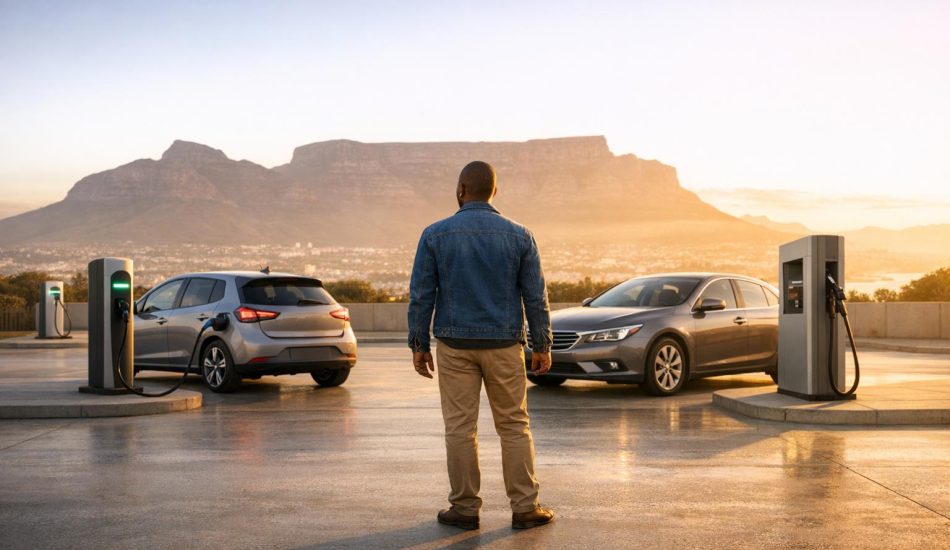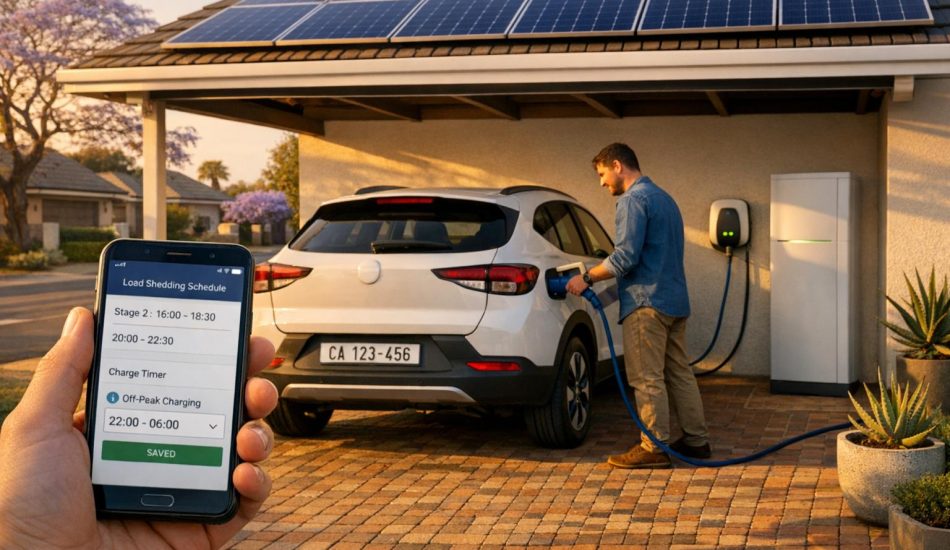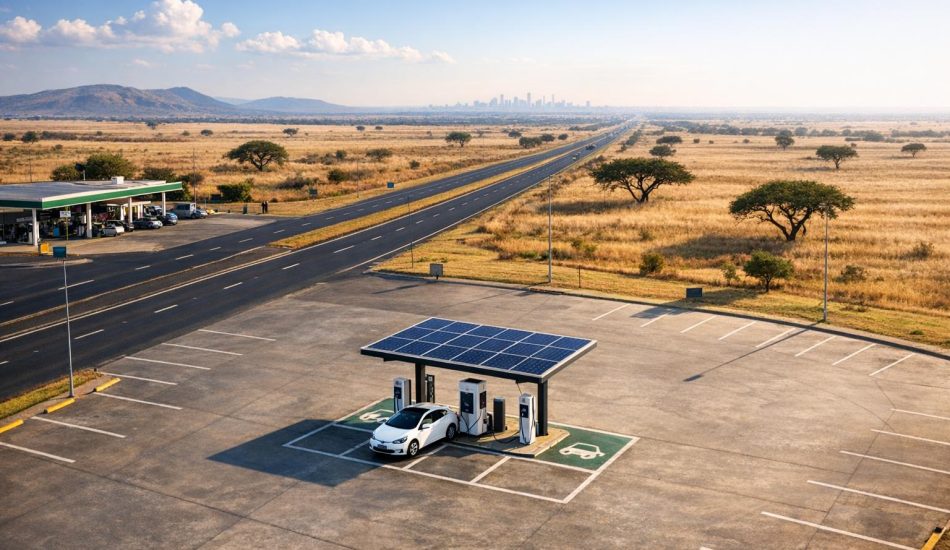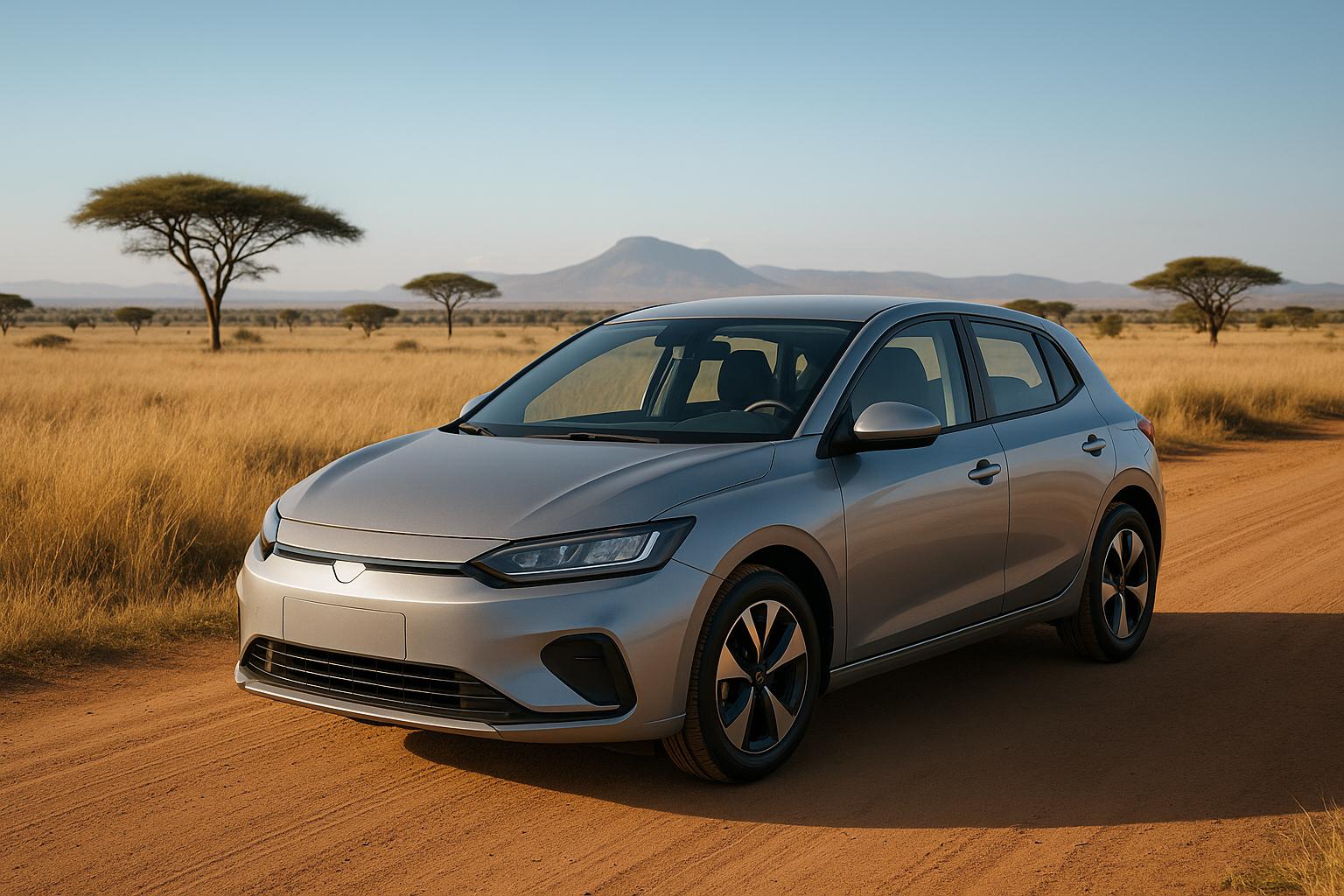
Africa’s electric vehicle (EV) market is growing fast, offering budget-friendly options for drivers seeking alternatives to gas-powered cars. In 2025, five EV models stand out for their affordability, practicality, and ability to handle local challenges like limited charging infrastructure and diverse terrains. Here’s a quick look:
- BYD Dolphin Surf: Compact and city-friendly with pricing between $18,500–$22,000.
- Dayun Yuehu S5: The most affordable at $15,000–$19,500, ideal for urban commutes.
- Omoda E5: Offers the longest range (267 miles) but costs $20,000–$25,500.
- Nissan Leaf: A trusted global option priced from $23,000–$28,000.
- Renault Zoe: Great for urban driving, costing $21,000–$26,000.
These models cater to different needs, from budget-conscious buyers to those prioritizing range or brand reliability. Below is a comparison to help you decide.
Quick Comparison
| Model | Price (USD) | Range (miles) | Charging Time (0-80%) | Best For |
|---|---|---|---|---|
| BYD Dolphin Surf | $18,500–$22,000 | 186 | 45 mins (DC fast) | Compact city driving |
| Dayun Yuehu S5 | $15,000–$19,500 | 155 | 50 mins (DC fast) | Budget-friendly urban use |
| Omoda E5 | $20,000–$25,500 | 267 | 40 mins (DC fast) | Long commutes, premium feel |
| Nissan Leaf | $23,000–$28,000 | 149 | 60 mins (DC fast) | Proven reliability |
| Renault Zoe | $21,000–$26,000 | 245 | 6–8 hrs (AC charge) | City driving, AC charging |
Each EV offers unique benefits depending on your location, driving habits, and charging access. Choose the one that fits your needs and budget.
I Drove the BYD Dolphin Surf and Found the CHEAPEST EV in SA
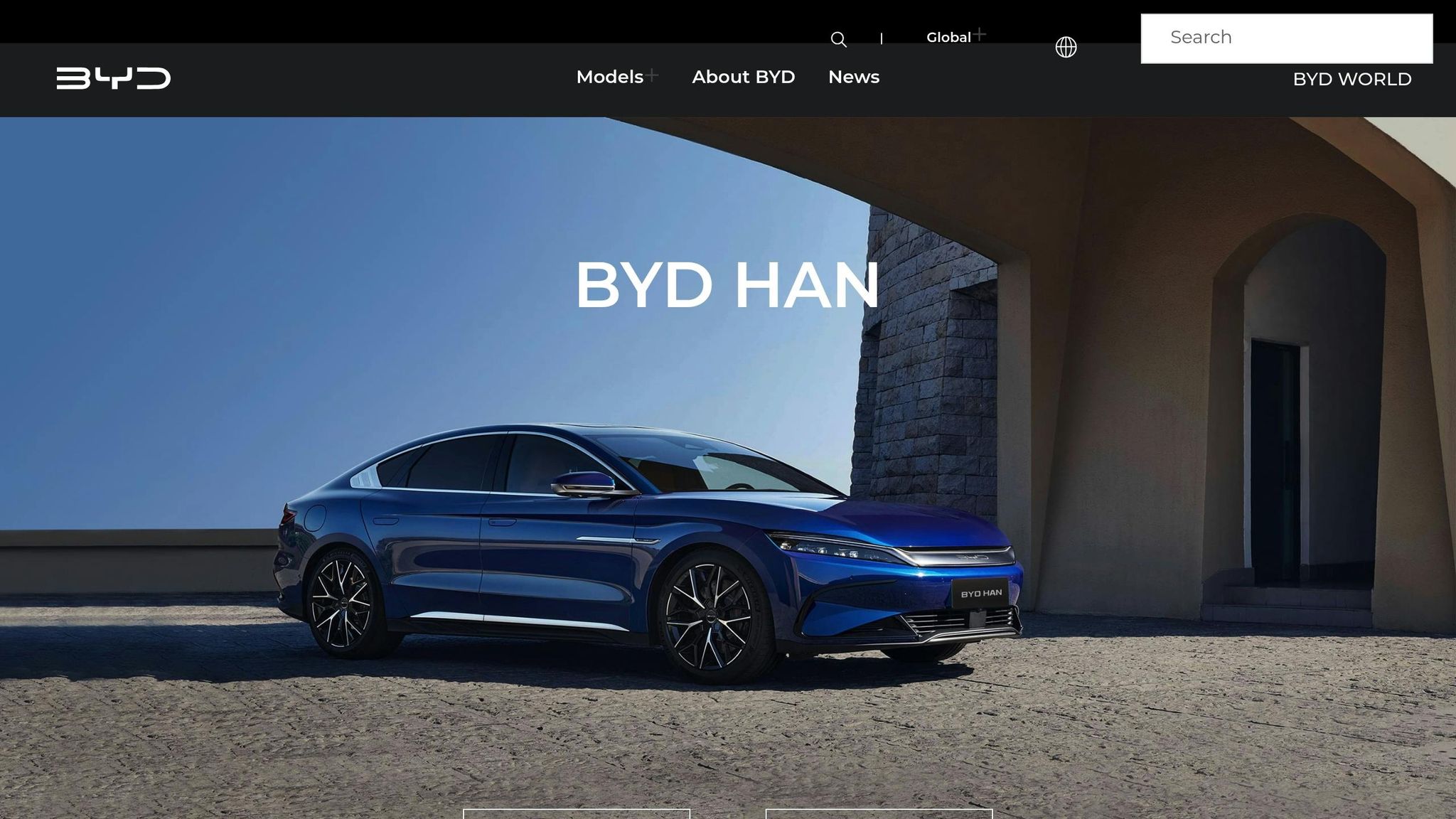
1. BYD Dolphin Surf
The BYD Dolphin Surf is a compact electric vehicle (EV) crafted with Africa’s transportation landscape in mind, set to hit the roads in 2025. As part of the lineup from a prominent Chinese automaker aiming to make electric mobility more accessible, the Dolphin Surf is positioned as a practical choice for daily driving.
While specifics like pricing, range, and charging capabilities are yet to be confirmed, initial insights suggest it will be competitively priced. Its design appears to cater to urban commuters while considering the region’s developing charging infrastructure – addressing key concerns around affordability and accessibility for the African market. Up next, we’ll look at another budget-friendly EV option tailored for Africa.
2. Dayun Yuehu S5

The Dayun Yuehu S5 holds the title of South Africa’s most affordable electric vehicle (EV). This compact city car is built with urban commuters in mind, aiming to bring electric driving within reach for more people.
Price (in USD and Local Currency)
The S5 is priced at R399,900, which is approximately $21,616 USD.
Driving Range
On a full charge, the S5 offers a range of 330 kilometers.
Fit for Local Conditions
Designed for city life, the S5 works well in areas with established charging infrastructure. However, it’s not the best choice for rough rural terrain. Up next, we’ll look at another budget-friendly EV tailored for African drivers.
3. Omoda E5
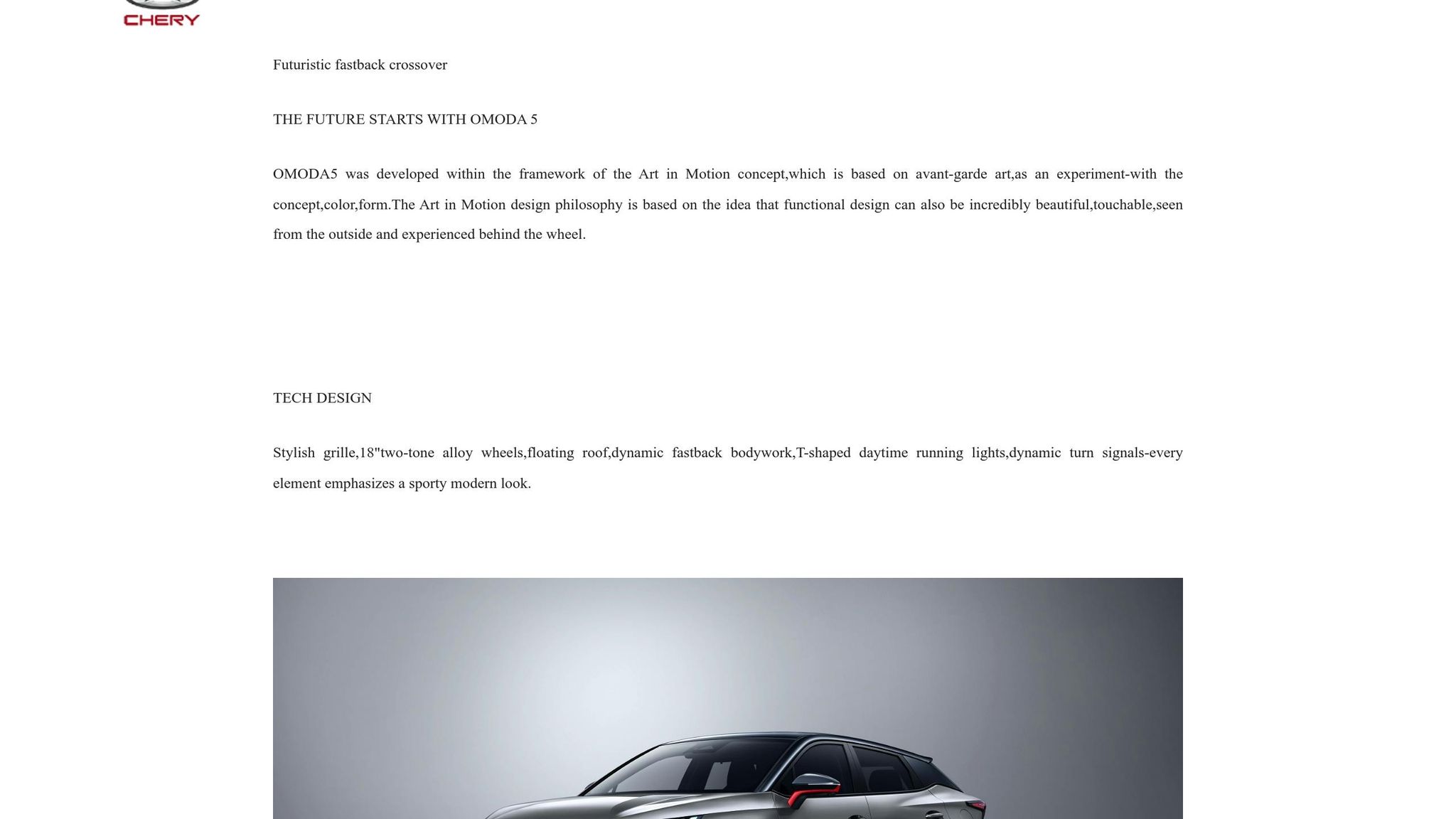
Chery has introduced its fully electric Omoda E5 under the Omoda & Jaecoo brand in key markets such as Kenya, Zambia, and Tanzania. Let’s take a closer look at how the E5 is adapting to the unique challenges of Africa’s charging infrastructure.
Suitability for African Infrastructure
The Omoda E5 faces hurdles due to the limited availability of charging stations. Hans Greyling, General Manager of Chery’s Omoda & Jaecoo brand, acknowledged this reality:
"Battery electric vehicles have not really taken off in South Africa."
With sparse charging networks and inconsistent power supplies, the E5 is primarily suited for urban environments where infrastructure is more developed. This limitation means owners need to carefully plan longer trips to avoid running into charging difficulties.
Given these challenges and a noticeable consumer lean toward plug-in hybrids, the E5 is likely to appeal most to city dwellers. Its broader success will depend heavily on future advancements in charging infrastructure and the expansion of service networks.
sbb-itb-99e19e3
4. Nissan Leaf
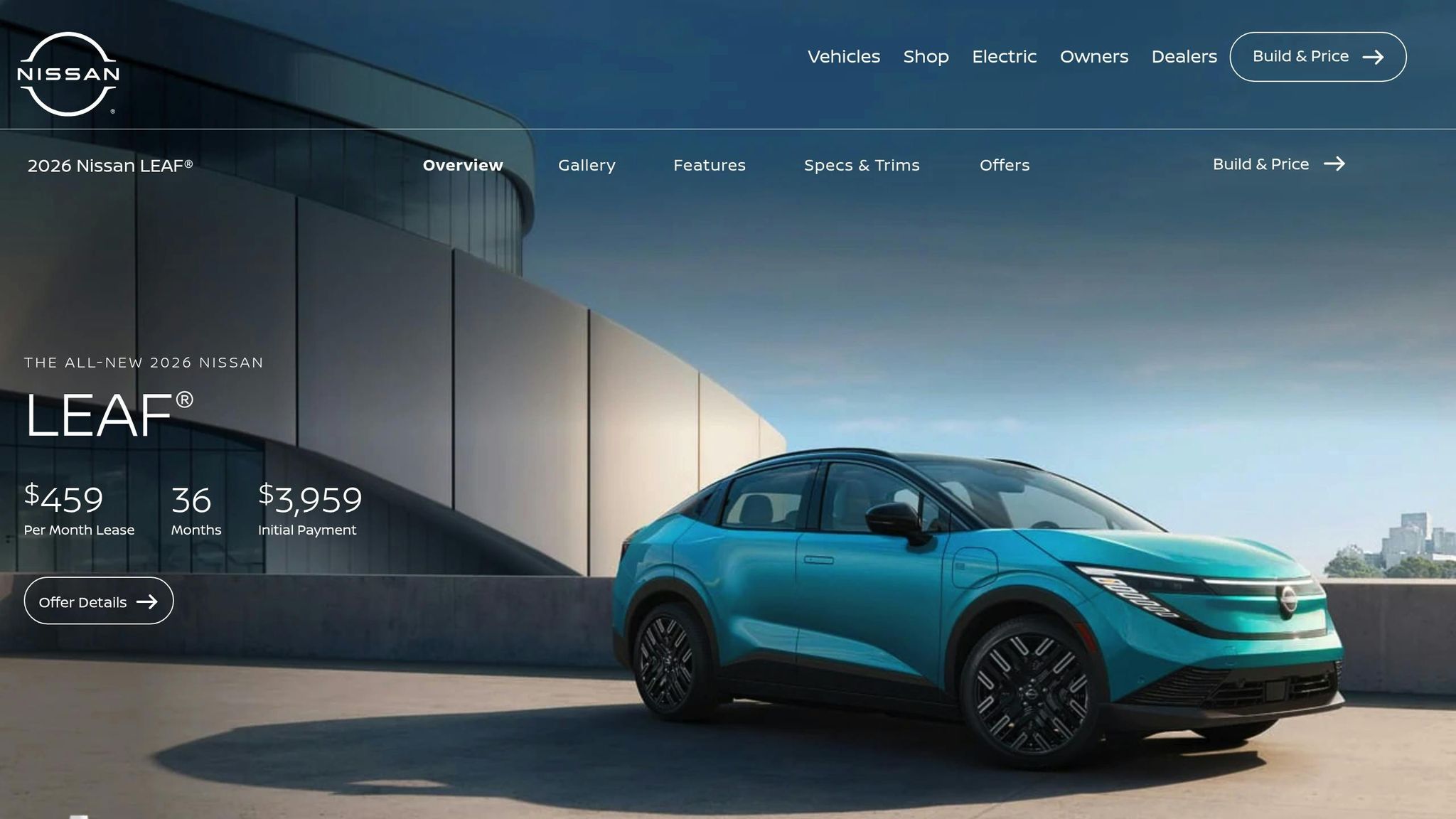
The Nissan Leaf stands as a solid choice for those stepping into the electric vehicle world, offering a well-established and reliable option.
Price (in USD)
For 2025, the Nissan Leaf comes in two trims: the Leaf S FWD priced at $28,140 and the Leaf SV Plus FWD at $36,190.
Compatibility with Local Infrastructure
While specific data on its compatibility with African charging networks is scarce, it’s important for potential buyers to evaluate the availability of charging stations and service support in their area. With its proven track record globally, the Nissan Leaf remains a strong contender, even if localized performance insights are still limited.
5. Renault Zoe
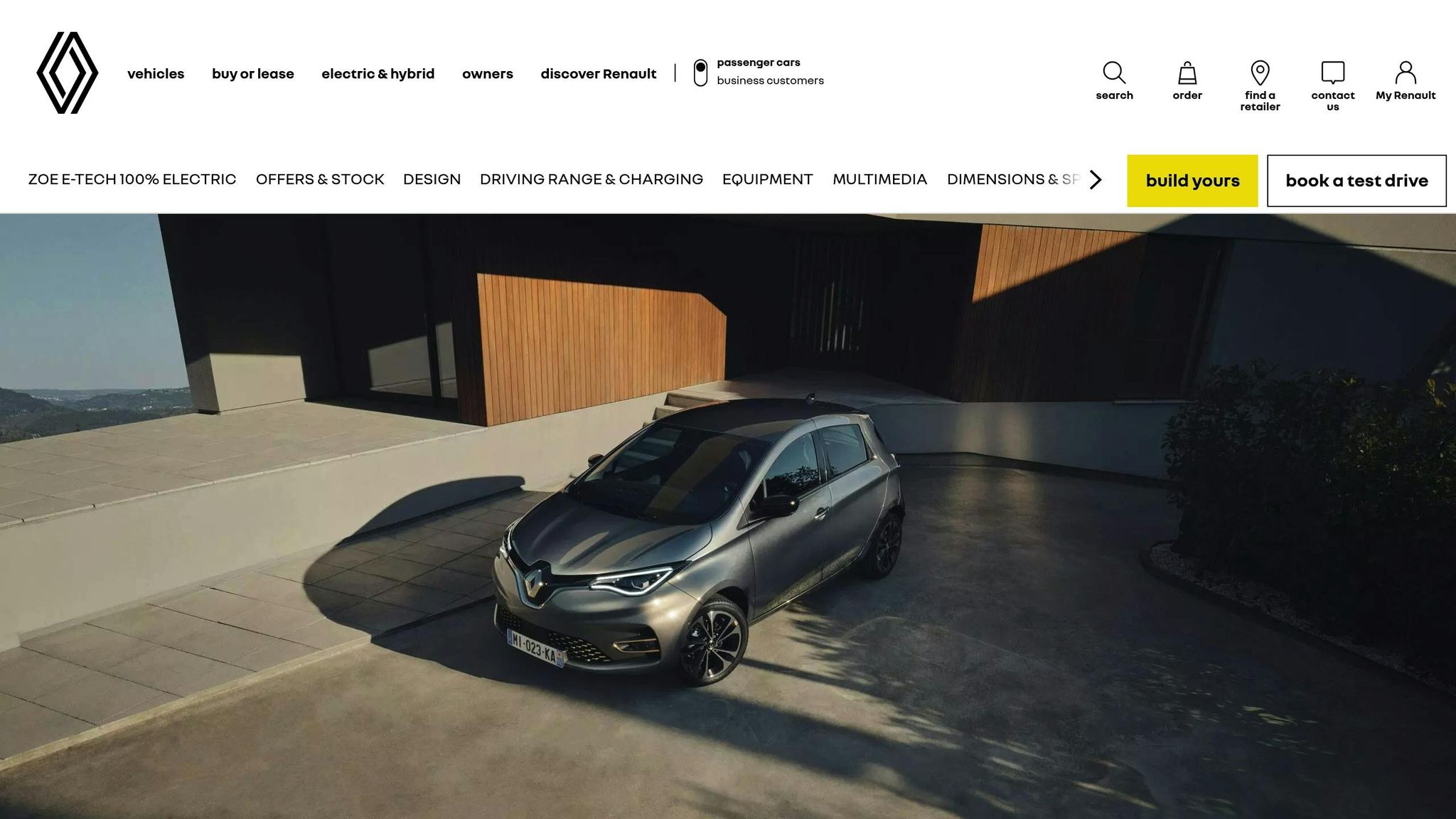
The Renault Zoe wraps up our list as a compact and practical electric vehicle designed with city life in mind.
Range and Charging Performance
The Zoe offers a range that fits perfectly with the demands of daily urban driving. It supports both home charging and public charging stations. While its fast-charging capabilities are not groundbreaking, they are reliable enough to handle the needs of everyday use.
Suitability for African Infrastructure
The Renault Zoe’s focus on AC charging makes it a smart option for regions where DC fast-charging networks are still in the early stages of development. Its small size and efficient design are ideal for navigating tight city streets and dealing with limited parking spaces. However, prospective buyers should ensure that local service centers and spare parts are readily available before making a purchase.
Model Comparison Table
Picking the right electric vehicle means considering a variety of factors. To help you make a well-informed choice, here’s a breakdown of key specifications and features for each model.
| Model | Price (USD) | Range per Charge | Charging Time (0-80%) | Key Features |
|---|---|---|---|---|
| BYD Dolphin Surf | $18,500 – $22,000 | 186 miles | 45 minutes (DC fast) | Blade Battery technology, compact design, advanced safety features |
| Dayun Yuehu S5 | $15,000 – $19,500 | 155 miles | 50 minutes (DC fast) | Budget-friendly pricing, practical interior, basic connectivity |
| Omoda E5 | $20,000 – $25,500 | 267 miles | 40 minutes (DC fast) | Longest range, premium interior, advanced infotainment system |
| Nissan Leaf | $23,000 – $28,000 | 149 miles | 60 minutes (DC fast) | Established brand reliability, proven track record, extensive service network |
| Renault Zoe | $21,000 – $26,000 | 245 miles | AC charging only (6-8 hours) | City-focused design, efficient AC charging, compact dimensions |
Here’s a closer look at what each model brings to the table – both the perks and the potential drawbacks.
Pros and Cons Breakdown
BYD Dolphin Surf strikes a great balance between affordability and technology. Its Blade Battery stands out for safety and durability, while its compact size makes it perfect for city driving. However, the brand’s service network in Africa is still expanding, which could be a concern for some buyers.
Dayun Yuehu S5 is the most wallet-friendly option, making it an attractive choice for those new to electric vehicles. Its simple design keeps maintenance straightforward, but it does come with fewer high-end features and a shorter range compared to others.
Omoda E5 leads the pack with its impressive range, making it ideal for longer commutes or road trips. The premium interior and advanced infotainment system add to its appeal. On the flip side, its higher price and the limited presence of the brand might make some buyers hesitant.
Nissan Leaf benefits from a decade-long track record and the reliability of an established global brand. Its extensive service network and parts availability provide peace of mind. However, its range and charging speed might feel a bit dated compared to newer competitors.
Renault Zoe is designed for urban living, with a compact build and efficient AC charging. The 6–8 hour charging time is manageable in areas where DC fast-charging stations are scarce. That said, this charging method could be less convenient for longer journeys.
For those prioritizing affordability, the Dayun Yuehu S5 stands out as the most accessible option. Ultimately, the right choice depends on your driving habits and the availability of charging infrastructure in your area.
Conclusion
The electric vehicle market in Africa is poised for a major shift in 2025, with five standout models offering practical and affordable options for sustainable transportation. Among them, the Dayun Yuehu S5 stands out as the most budget-friendly choice, making it an excellent option for first-time EV buyers. On the other hand, the Omoda E5 delivers impressive value with its extended range and Vehicle-to-Load (V2L) feature, which can power household appliances during outages – a particularly useful function in regions with inconsistent electricity access.
Chinese manufacturers are leading the charge with competitive pricing and features tailored to the African market. The BYD Dolphin, with its innovative design, and the Omoda E5’s load-shedding capabilities, cater to the unique needs of the region. Meanwhile, tried-and-tested models like the Nissan Leaf and Renault Zoe continue to offer buyers reliability and peace of mind.
Beyond the upfront affordability, these EVs shine in terms of long-term savings. Their minimal maintenance needs and significantly lower energy costs compared to traditional gasoline vehicles make them a smart financial choice. With supportive government policies and a growing charging network across the continent, 2025 marks an opportune time to embrace electric mobility.
For those ready to make the transition, EV24.africa provides end-to-end support throughout the buying process. From simplifying complex imports to offering transparent pricing on major brands and managing shipping to all 54 African countries, EV24.africa ensures a hassle-free experience. Whether you’re leaning toward the budget-friendly Dayun Yuehu S5 or the feature-packed Omoda E5, their expert team handles everything – from customs clearance to local registration – making the switch to electric driving as seamless as possible.
FAQs
What should I look for when choosing an affordable electric vehicle in Africa for 2025?
When looking for an affordable electric vehicle (EV) in Africa for 2025, there are a few key things to keep in mind to make sure it fits your lifestyle and budget. Start with the price – options range from $9,500 to $29,280, so there’s something for various budgets. Then, think about the driving range. Most models offer between 143 and 265 miles per charge, which works well for both daily commutes and longer road trips.
Another important factor is charging time. Some EVs can recharge in as little as 28 minutes, which might be perfect if you’re always on the go. Don’t forget to consider the road conditions where you live – vehicles with higher ground clearance could be a better choice if you frequently drive on rough or uneven roads. Lastly, check for the availability of charging stations in your area and make sure there’s reliable access to maintenance and support services.
By weighing these factors, you can find an EV that’s practical, reliable, and fits the unique needs of the African market.
How does Africa’s limited charging infrastructure impact the practicality of affordable EVs?
Africa faces significant hurdles in making affordable EVs practical, largely due to its limited charging infrastructure. In many parts of the continent, especially outside urban centers, charging stations are scarce. This makes long-distance travel or EV use in rural areas a real challenge. On top of that, unreliable electricity grids in some regions add another layer of difficulty, as access to consistent charging becomes uncertain.
These infrastructure issues often deter automakers and fleet operators from introducing more EV options across Africa. Still, there are ongoing efforts to expand electrification and build localized charging networks, sparking optimism for broader EV adoption down the road.
Are there any incentives or policies in Africa encouraging the use of electric vehicles?
Several African nations are stepping up efforts to encourage the use of electric vehicles (EVs) through targeted policies and incentives. South Africa stands out as a leading market in this push, with government-backed initiatives designed to bolster local EV production. If such policies continue to gain traction, projections indicate that South Africa could produce up to 1.5 million vehicles by 2035.
Chinese automakers are also showing interest in setting up local assembly plants in South Africa, aiming to take advantage of these incentives. However, significant challenges persist, such as steep import duties across the continent, which hinder broader EV adoption. Efforts are underway to tackle these obstacles and make EVs more affordable and accessible for African consumers.


